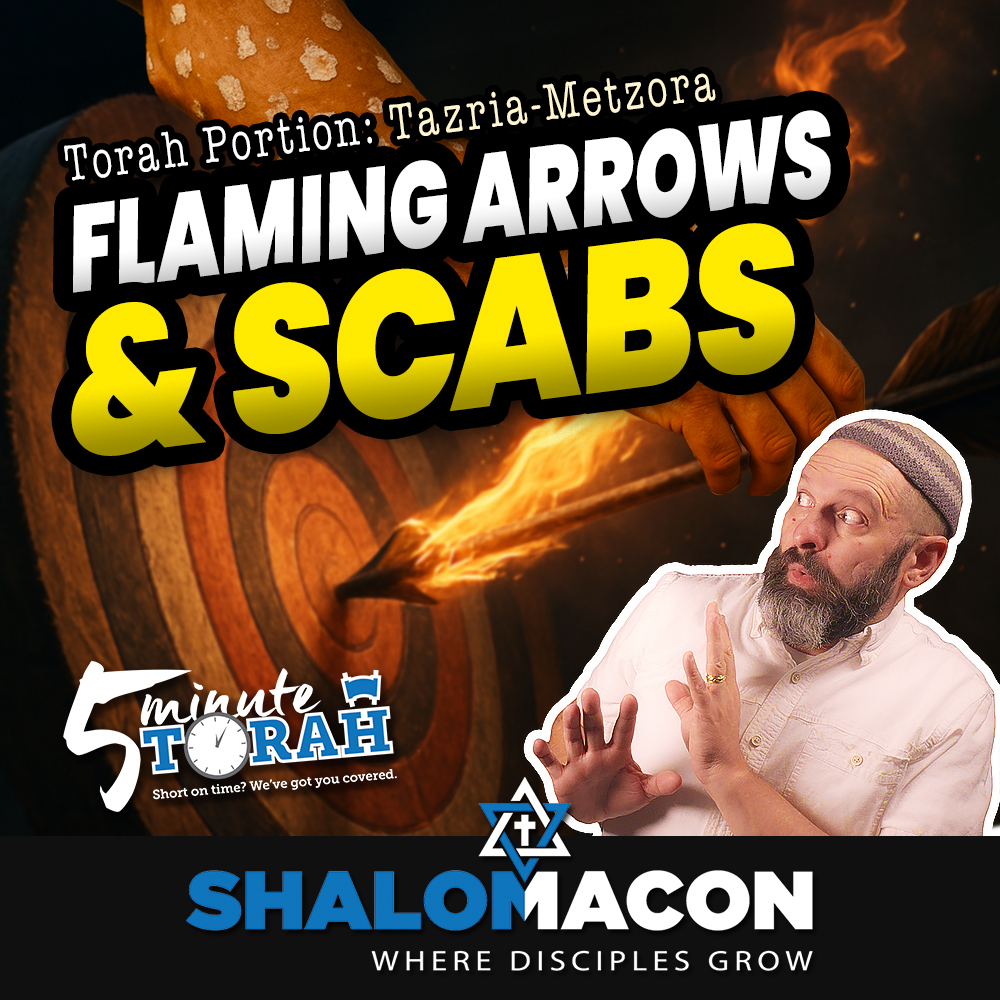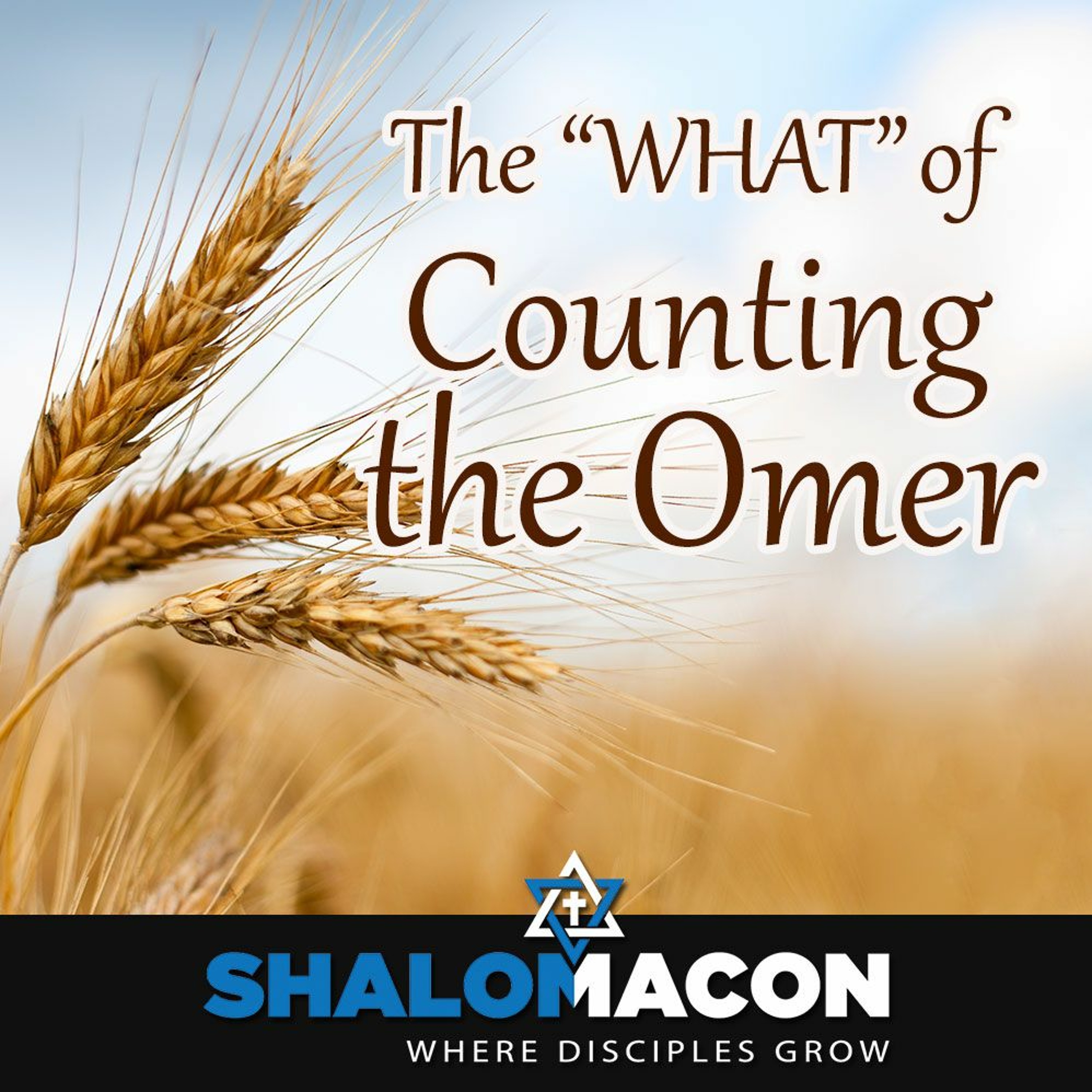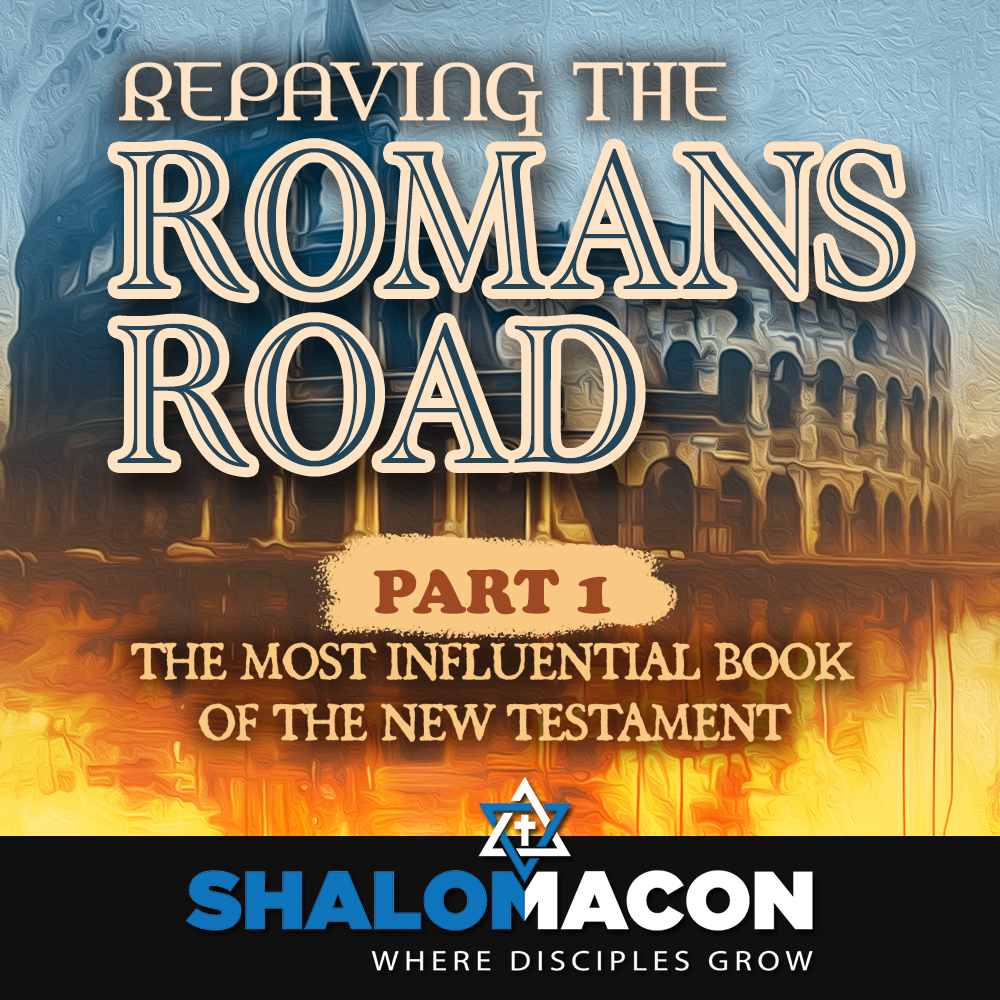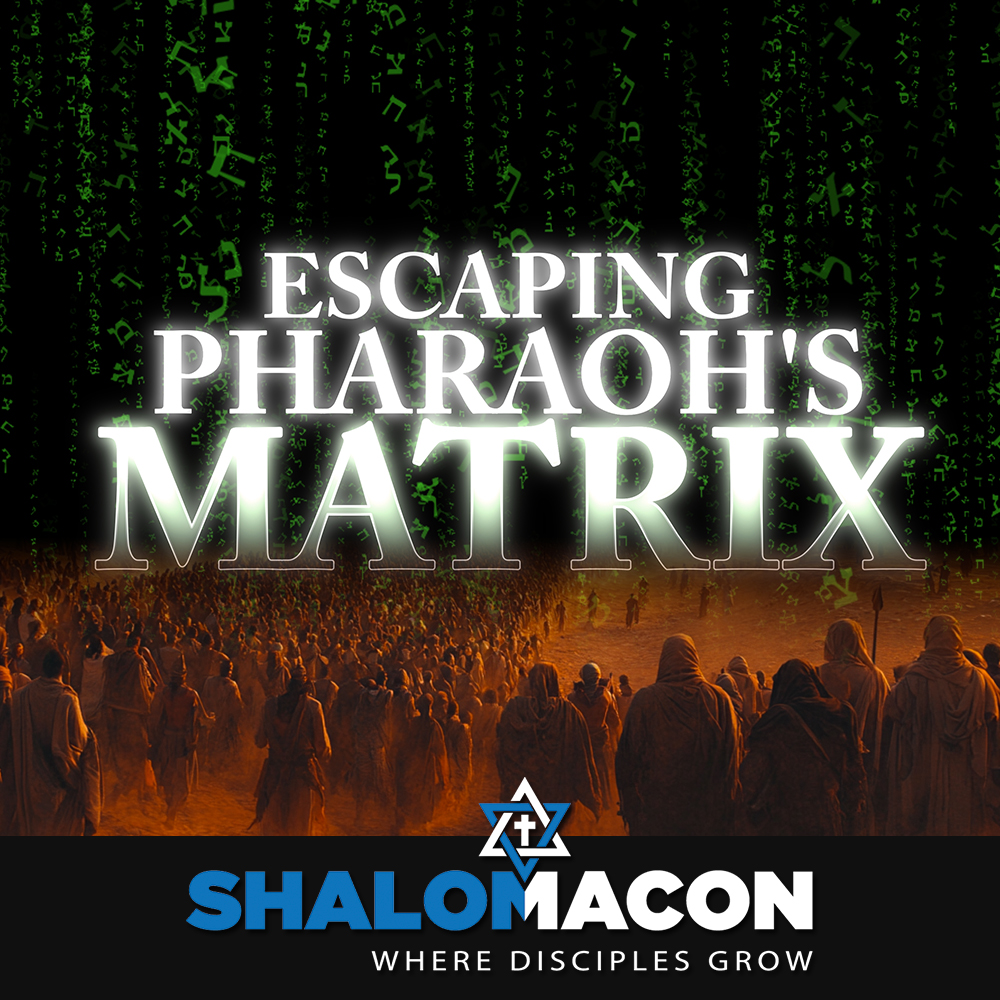Episode Transcript
[00:00:00] I don't think many people would ever consider pointing a loaded weapon at someone unless there was an immediate threat to their lives. Weapons, especially firearms, aren't something to play with. But we point dangerous weapons at people all the time and probably don't even realize it. And many times the damage they cause is beyond repair. And the sad part about all of this is we may be completely oblivious that we're mortally wounding someone we love. Not sure what I'm talking about? Then stick around with me for this week's five minute tour.
[00:00:35] Shalom and blessings from Shalom Macon, the place where disciples of Yeshua learn, connect and grow. I'm Darren and before we get into the five minutes of my five minute Torrent commentary, let's cover a few quick facts about this week's Torah portion. This week we are in the 27th and 28th Torah Torah portions. We're studying the double portion of Tazria Mitsura, Leviticus 12, 1, 1533 and here are the three things that you need to know about it. 1. Impurity in Childbirth Is God a misogynist? The perception that God is misogynistic stems largely from a shallow understanding of our current Torah portion. A service reading of the laws of purification after childbirth, which require longer periods of purification for the birth of a daughter than for a son, has caused critics to view these and similar passages as indicative of a divine preference for males over females. However, this interpretation overlooks the complex nature of ritual purity in the biblical culture. The distinctions in purification periods can be understood through various lenses, one of which revolves around the sanctity of life and the role of women as bearers of future generations. Women not only have an inherent connection to purity, but but also carry the potential for both physical and spiritual reproduction. They are life bearers, and thus the Torah's laws of purification are tied to their role as such. Hence the emphasis on times of separation and purification as a means of elevating women rather than discriminating against them. Number two Tzara'at and Mitsorah the Disease and the Diseased in most years, the Torah portions of Tazrih and Mitzorah are read together and the themes of these two Torah portions are are intertwined. In each of these Torah portions we discuss Tzara, Biblical leprosy and the Mitsorah, or the Biblical leper. To clarify, Tzara is the disease and a Mitzorah is the one who has the disease. Where the portion of Tazria covers the detection and diagnosis of Tzara, the portion of Mitsurah primarily covers the rituals that were to take place once the disease had subsided. We'll talk more about this in our commentary momentarily. Number three Soul Physician the Role of the Kohen in the Torah the act of the kohanim, or priest Diagnosing Tzarat teaches us a profound that spiritual transgressions can manifest as physical ailments. This responsibility placed upon the priests elevated their role from mere religious officiants to spiritual guardians within the community. Their responsibility went beyond the surface. Probing the depths of of an individual's spiritual integrity as Tzarat wasn't simply a physical malady, but a tangible repercussion for certain types of sin. This diagnosis acted as a divine prompt for introspection and transformation, linking the physical blemishes of Tzarat to the spiritual corrosion caused by misconduct through the purification rites. The priests were chiefly invested in healing the soul and restoring the individual, enabling them to return to their place in communal life, particularly communal worship. Are you a disciple of Yeshua? There are a lot of people who say they are, but when it comes down to it, they really don't even know what it means to be a disciple. Why? Because discipleship is a concept unique to Judaism. It's an intimate relationship between a rabbi and his student. Yeshua called 12 men to be in his inner circle of discipleship, and those 12 men changed the world. What did they know about being a disciple that we don't? I wrestled with this question when I wrote my book the Four Responsibilities of a Disciple. There were a ton of books already written on how to make disciples, but I wanted to know what it meant to be a disciple, because it seems that all of these disciples that were being made in our day really weren't having an impact on the world around them like they should. I found out that there were four responsibilities every disciple should know, and that when implemented, living out these four responsibilities has the potential to change the world. If you want to know what it means to be a true disciple of our master Yeshua, then check out my book the Four Responsibilities of a Disciple, using the link below. This week's Torah commentary is called Flaming Arrows and Scabs and comes from my book 5 Minute Torah, Volume 3. In Parashat Tazria, we are introduced to a skin disease of biblical proportions called tzara. Most people know it as biblical leprosy. However, as I talk about in my commentary on this portion in my book, Five Minute Torah, Volume 1, Zara at is completely unrelated to what we call leprosy today, or hansen's disease. Tzara'at is a spiritual malady that affects not only the skin but also the clothing and the walls of a person's home. It could begin as a moldy looking spot on a person's house and end up as scab looking blotches on his skin. And the primary way tzarat was contracted was through lashon hara, or evil speech. A person who continually gossiped and spoke destructive words about others would eventually become afflicted with this disease. With this in mind, studying the laws of Tzarat is an opportunity to remind ourselves of the damages of speaking ill of other people and how important it is to to guard our tongues. Too often we forget about the destructive nature and the severe consequences and damages Lashan Hara can inflict. The Talmud says that Lashan hara kills three people, the speaker, the listener, and the one who is spoken of in Arachin 15B. How so? It kills the person speaking because it damages their reputation. They become known as someone who is malicious and and uses information to harm others. It kills the listener because it alters the way they perceive other people. It kills the one spoken of because it damages their reputation. The prophet Jeremiah compares the tongue to an arrow, saying, their tongue is a deadly arrow. It speaks deceitfully. Jeremiah 9:8 why? Unlike a sword, an arrow can be deadly even at a distance. A person does not need to be in close proximity to be wounded by arrows. They merely have to be in the path of the flying object. But an arrow can travel only so far. The tongue, in other words. Lashon hara, however, has no limits on distance. It can travel around the world and pierce an unsuspecting heart without any effort at all. The Midrash on Psalms compares lashon hara to an arrow because of its irreversible consequences. A person who unsheathes a sword can regret his intention and return it to the sheath, but the arrow cannot be retrieved. A fire is similar in this regard. Once an object is ablaze, it can't return to its original state. Another characteristic of fire is that it can spread to unintended places and do an insurmountable amount of damage. James, the brother of our master, uses this analogy to describe the effects of of Lashon Hara. The tongue is a small member, yet it boasts of great things. How great a forest is set ablaze by such a small fire, and the tongue is a fire, a world of unrighteousness. The tongue is set among our members, staining the whole body, setting on fire the entire course of life, and set on fire by hell. James 3:5 6 We must also remember that that lashon hara isn't just slander or speaking lies about someone. Our speech can be considered lashan hara even if it's true. It's easy to criticize and backbite and think we're just relaying the facts. However, we shouldn't even consider speaking negatively about someone unless it's vital to protect another person. The Torah portions of tazriya and matzorah aren't merely about scabs and ritual impurity. They also teach us about how we speak of others. The next time you're tempted to speak something negative against someone, remember that you're about to launch a flaming arrow that will land much farther away than you anticipated and wound more people than you intended. And once it flies, the fire will spread and consume both the innocent and guilty alike. Why not extinguish that arrow and put it back in the quiver? It's much safer for everyone. If you want to understand how rabbinic literature helps us better understand the teachings of Yeshua, then I've got the perfect series for you. A few years ago, I published a series of videos on a rabbinic text called Perkei Avot, also known as Ethics of the Fathers. My series is called Per Kevot and the Teachings of Yeshua. You should check it out. It will revolutionize the way you look at both rabbinic literature and the teachings of our master. Just click on the link right here to get started.



